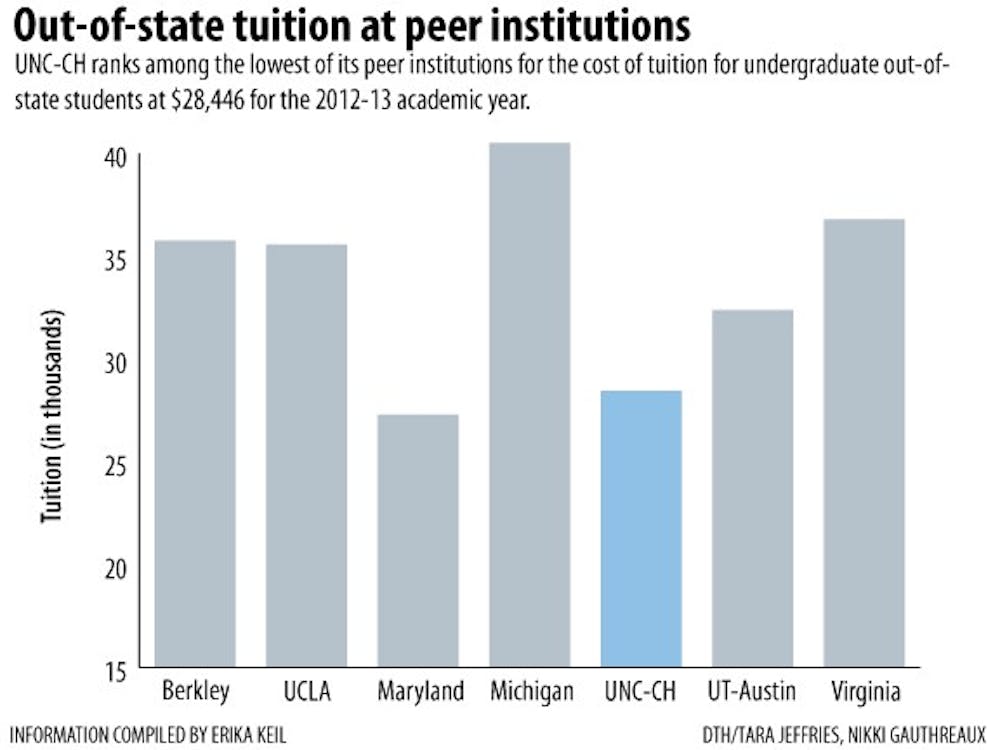The national trend toward higher tuition is virtually universal, but the methods used to get there are anything but.
The process for setting tuition increases varies across different public university systems. Some schools, for example, propose tuition increases based on specific majors.
In the UNC system, students are charged differently depending on which campus they attend. Each campus proposes its own tuition and fee increases.
A UNC-CH committee recently proposed increasing tuition for out-of-state undergraduate and graduate students by $1,630, or 6.1 and 6.8 percent, respectively.
Despite these increases, UNC-CH still ranks among the lowest of its peer institutions in out-of-state undergraduate tuition.
Joni Worthington, spokeswoman for the system, said in an email that campuses propose out-of-state tuition rates based on internal needs.
“Combined rates for nonresident undergraduates are to be market driven, and campuses are expected to submit rates that reflect the full cost of providing out-of-state students with a quality education,” she said.
The system’s Board of Governors mandates a different approach for in-state undergraduate tuition, requiring campuses to propose rates that remain in the bottom quartile of their peer institutions and do not exceed increases of 6.5 percent.
A $600 increase for in-state undergraduates has already been approved for the 2013-14 year.



